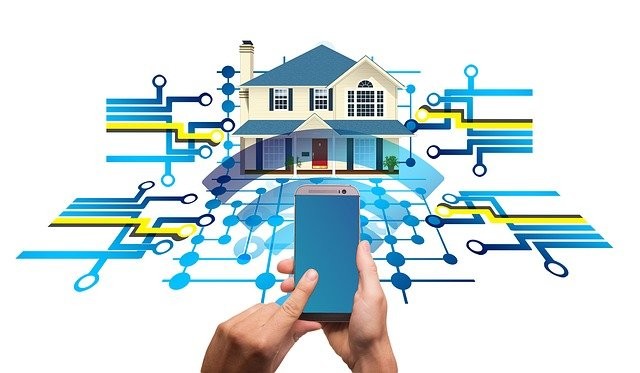Living in smart homes used to be a dream that was envisioned not too long ago. Today, we see this vision turning into reality. In most of the major cities around the world, we see homes that are no different than the smart homes envisioned long ago. Thanks to the adaptability and the enormous spread of the internet and its related services, many houses can easily turn into smart homes, equipped with features that massively increase convenience and comfort.
Almost every person today uses IoT devices like Google Home, Smart locks, and Smart Cameras. These devices, when connected to SBC's (Single board Computers), make your home truly smart. For instance, most air conditioners and refrigerators today have their own smart applications that can be installed on your phone. Using these apps, you can control the temperature of these devices or turn them on or off easily from your phone. You don't even need to be at your home to control these smart appliances because they can be controlled from your phone regardless of wherever you are.
Moreover, smart home devices like Google Nest and Amazon Echo make it even more convenient to control IoT appliances smartly. You don't even need to open any application on your smartphone to control these devices. You can just use voice to pass on orders or instructions to these devices.
Convenience over security?
You may have heard the saying that convenience and security don't always go hand in hand. This is certainly true for smart homes. Although these devices and appliances are extremely convenient for the end-user, without proper security, these devices can easily do you more harm than good.
Let's imagine, for instance, that the smart CCTV camera installed in your home gets hacked. The hacker will then easily be able to access the CCTV footage and keep an eye on your activities whenever he wishes. In a similar scenario, let's say that your smart refrigerator gets hacked. The hacker can easily increase the temperature of the refrigerator if he wants to, and that would ruin all the food that was placed in it.
Your data can also get hacked if any of your smart home devices get hacked. For instance, smart home systems often track when you come home and leave and uses this data for smart features like turning on the AC just when you're about to come home and keeping the lights open. Now imagine if this data gets hacked. The hacker would immediately get access to a lot of information about you, information that can then be used to do you harm.
How to ensure cybersecurity at home?
Hacking into your smart home devices is easier than you think. And it is usually done through your home network. If, for instance, the hacker hacks into your home router, he will have control over all the smart devices that are connected to that network. And believe it or not, hacking into Wi-Fi is easier than you think. It can be done even if the hacker does not know your Wi-Fi password. This is because there are several tools already available that allow hackers to bypass basic Wi-Fi securities and hack into them.
Once a router gets hacked, the hacker can then use it to hack into other devices that are connected to the network. And since most of your smart home appliances are connected to that same network, their security immediately gets compromised by the hacker.
Although the situation looks pretty stark, there is a solution available that can save you from problems such as these. You can easily improve the security of your Wi-Fi network and any devices that are connected to this network with a VPN. If you connect to a secure VPN network, you can take advantage of the end-to-end encryption that it offers and secure your entire home network.
When you install VPN on your Wi-Fi hotspot, any online communications passing through this network are immediately encrypted, which means that no hacker would be able to compromise that network. A VPN can also be installed on many of your smart devices at home, such as your smart TV, your smartphone, computers, and whatnot. Keeping these devices connected to a secure and encrypted VPN network is sure to keep them safe from all kinds of hacking attempts through a Wi-Fi network.
* This is a contributed article and this content does not necessarily represent the views of sciencetimes.com















